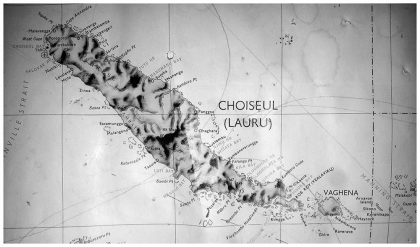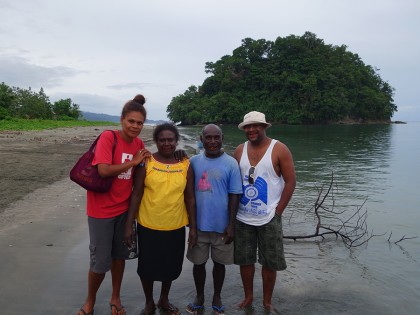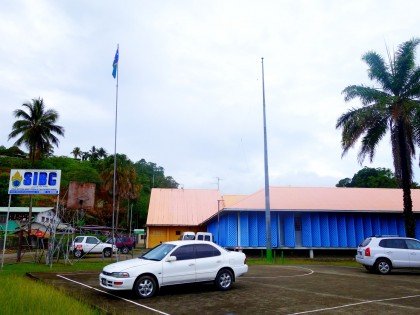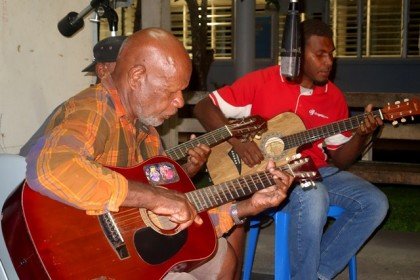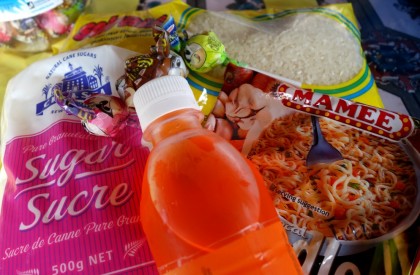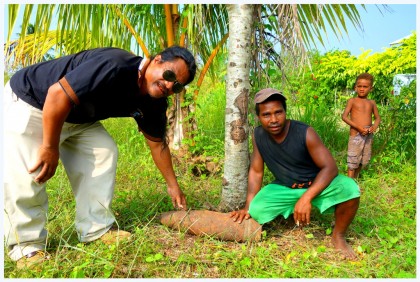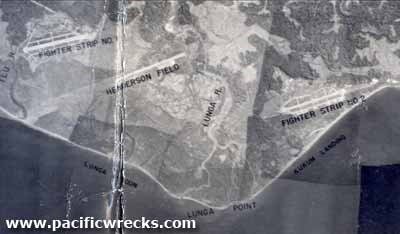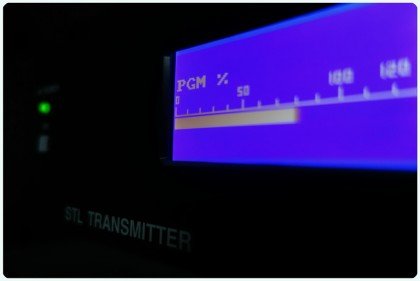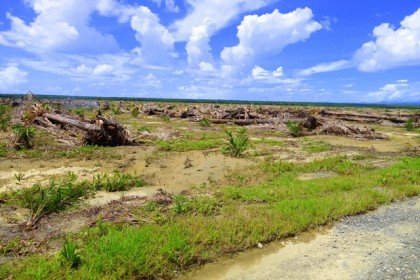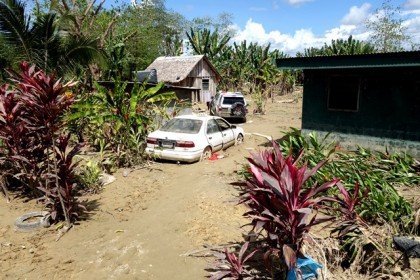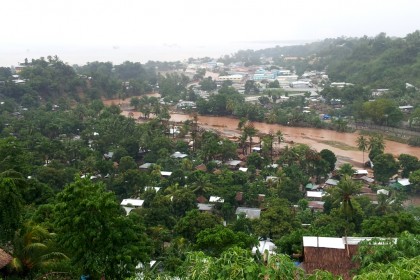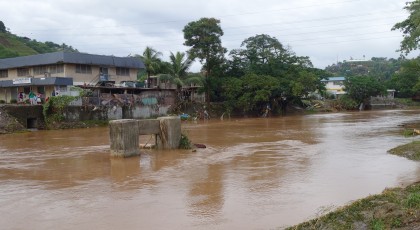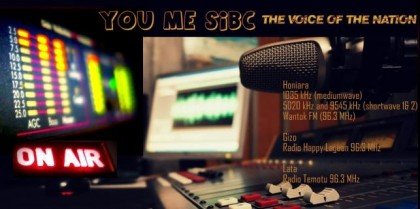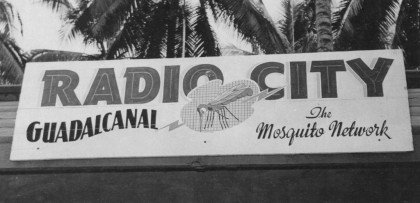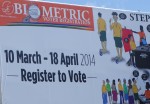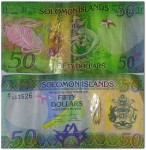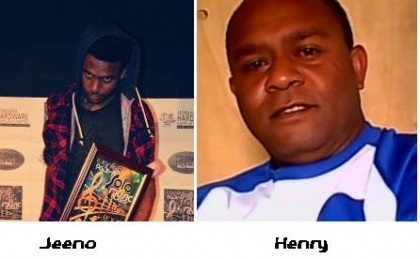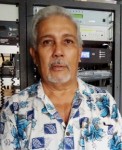YOU ME SIBC
‘THE KEYZ’ TONIGHT ON SIBC FM, AM AND ONLINE STREAMING
January 06 2017
“Tonight SIBC begins promoting the young and up and coming musicians in addition to the regular String Bands.
KEYZ is a group of young men in their twenties from Malaita, Guadalacanal, Choiseul and the West who use acoustic strings and are already masters of the chords and melodic combinations.
They have a broad repertoire ranging from old favourites to the latest overseas hits. They will come back again in coming weeks to introduce some young women who are singing with them, and also a whole school of young teenagers who attend a music school organised by one of the musicians in this group.
Follow the links to hear them online tonight from 9 to 10pm Solomon time.
We thank the nation’s fishermen and women who work in NFD Ltd who sponsor the String Band program each Friday evening. The program is repeated on Saturday evenings.
________________________________________________________
Article 23
By Ashley Wickham, October 17 2014
PROGRAMS TO WARM HEARTS
Unless listeners listen to us all day every day it is difficult for them to know what programs are being produced and when to listen. This article simply tells the stories about the stories heard on SIBC in recent months and about another one or two that are being mulled over.
[expander_maker more=”Read more” less=”Read less”]Creating or conceptualising programs is one thing. Producing them is another. A good creative writer is not necessarily a good radio producer or vice versa. The following programs started off as described, and some deviate a little. But they are catching on. Our challenge is that the team of producers headed by Executive Producer Ms. Moddie Nanau has so much material to work with that they have become nearly overloaded. Our predicament is whether or not we should continue without commercial sponsors. We believe these programs have great potential for commercial sponsors as they bring life, love, humour, history and a great deal of understanding because each of these brings a little bit more warm familiarity about our multiple and overlapping cultures to the fore.
These are stories about things dear to us. We hope you will have time to listen to SIBC and to enjoy these and others that we have been producing for some time. Names of programs are in red.
LANGUS BLO IUMI (OUR LANGUAGES) 21.45pm on Wednesdays, 08.20am, 12.45pm &15.30pmThursdays. Producer: Moddie Nanau
We are a nation of about 80 languages and dialects in an archipelago scattered over a few thousand square kilometres of ocean. This program’s purpose is to help people of different languages learn a few words, phrases or sentences from a different language in SI. This is a hugely popular program and people from towns and villages are keen listeners. It is presented in a generous way with a lot of humour. These are some of the issues we live with that find their way into this program:
– Some older people are not happy with the way young people modify their languages
– Some people find words in their language have different meanings in other languages
e.g. in Roviana ‘pokonene’ refers to trousers. People on Malaita thought it referred to underwear!
– Most people enjoy listening to different accents. Some roll the ‘Rs’ like the Irish, some have a lilt like the Scots, some have no J and use Z instead. Some use D wherever a word has R in it. We have one language that employs the ‘th’ sound as do Fijians.
– Most of our people speak two or three different dialects from their locality and we enjoy learning other languages and dialects.
– Many people realise we have more commonalities in language than differences. The reason is that most of our languages come from the Austronesian family of languages which stretches from Asia thru Melanesia, Micronesia and Polynesia. It is also present in Madagascar in the Indian Ocean.
– There are several languages in our country that have no relatives even within this country. The linguists call them Non Austronesian because they are not even related to each other! Among these are Lavukal, Savosavo and Rio of Rendova.
SOLOMON PIJIN 08.20am,12.45pm,15.30pm & 21.45pm on Tuesdays
Producer: Rolland Koofuli.
This program is about the range of different ways we speak Pijin in Solomon Islands. Sandwiched in between PNG Tok Pisin and Vanuatu’s Bislama, there is no standard way of speaking Solomons Pijin, while theirs are locked in standard dictionaries. This is important when we realise we have so many accents of our own which we apply when speaking Pijin. As it collects new words every year SI Pijin is the most colourful of all Pijins. Old words are being shortened every year: an example is the original ‘Oloketa’ from the 1950s. It shortened to Oketa, then ‘Keta and now…’ ta’ is enough to begin a sentence like ‘ta pipol kam na’ – ‘the people are coming’.
BUSY-NESS 08.20am,12.45pm, 15.30pm & 21.30pm on Wednesdays
Producers: Gina Kekea and Bart Basia
This program tells stories of people who started their own business and how they became busy looking after themselves and their families. These are stories of thrift, hard work, persistence, risk and sweat. From the betel nut seller who now owns a fastfood business to the kerosene seller who became a millionaire! It is meant to inspire people to create their own livelihoods.
PICTURE OF HOME 08.20am, 12.45pm, 15.30pm &21.45pm on Mondays
Producer: Moddie Nanau
Film makers don’t capture images of most of our villages. And if a picture is worth a thousand words, we try to capture the picture of someone’s home village in a thousand words. People love talking about their home villages, especially those who are stuck in Honiara.
YOUR DREAM 21.45pm Thursdays, 08.30am, 12.45pm and 15.30pm on Fridays
Producer: Miriam Basia.
This program is to persuade young people to dream and plan ahead to achieve their dreams. It tries to persuade them to save money, to plan and strategise. Island lifestyles are very laid back and there is a lot of dependence on government, aid agencies and churches. And young people marry – or at least have children – very young. They are persuaded to not seek personal gratification just because it is possible. Delayed gratification of basic needs and wants can accumulate resources to create your own future.
BIG MONEY 17.30pm Thursdays, 08.30am Fridays
Producer: Gina Kekea
Big Money is the story of the tricksters and fraudsters on-line, in our streets and in our communities. Starting with pyramid schemes, the programs tell stories of people who have been defrauded, and information is provide to help people spot frauds. The most notable ones are now online.. in our inboxes. One person in SIBC should be a USD millionaire by now if all the ‘winning tickets’ he has been awarded since January this year were genuine. Women are usually the victims. Other scams are to do with online gambling. These are explained and people are warned.
ELEKSON FO WAT? 06.35am Monday to Sunday, 07.45am Saturday & Sunday, 08.45am,Monday to Friday,11.45am Monday to Sunday, 14.05pm Monday to Saturday & 19.45pm Monday to Saturday.
A popular program preparing people for the general elections in November this year. A lot of hard work goes into this. Moddie has been in charge and has a team of several people from the newsroom and her production unit working on this daily. Are people listening? Read this print out from last Sunday 12th Oct when SIBC ran a speech contest for students in Honiara. The text responses were mainly from young people.
6777486553 Dear brandt go brandt go brandt go from:sister shannon
6777812651 I totally enjoy Brandth’s speech.go brandth win!
6777596034 K g 6 jesica she is best speech i ever heard and thank god for his spéech may god will always bless us in si
6777621382 I totally admire Brandth’ts speech.Go Branth go.
6777525842 I dedicate Song -Peaceful Harbour 4 all speakers -we trust all your excellent speeches will encourage voters to take us all to Peaceful Harbour.
6777899916 every speeches sounds good- but to me the best one is the last&final speech. davidson north guadalcanal constituency g.plains
6777486553 I really love and enjoy Brandth’s speech alot.Go! Brandth ,GO!
6777558227 Britney. basia
6777872046 Britne Basia B@ñö
6777590160 Britney Basia
6777424365 Dear Announcer am Betty.Kay from Auki town,i just want to congratulate all of both the senior and junior categories for their wonderful speeches, thank your all for your participation, if any intending candidate is listening right now you should better consider those good ideas from the speeches that the young people of Solomon islands is concerning about, I am also one of the young citizens of these country who is concerning about the future of Solomon islands wish all the best.
6777497055 Congratulation to all the presenters of this afternoons Election for What (secondary school competition). I only manage to listen to the two presentation. Gud evening evri wan. For your information, uncle Maurice and I are of same age, and I don’t believe my ears to hear him sing as a under 16. Mo, you’r e still doing fine. Thanks for your old hits, they’re still the best. From Sam Maitani, Oloha Village, Small Malaita.
6777488529 britney
6777682318 i appreciate the student mention education because it is there that everything begins . parents must take note to what the students have said. thank you.
6777620064 for jnr catgry , student frm betikama
6778668861 Yia me wils nomoa from sinu,i thing the speech from the KG student cout and important concept like member must be a quality leader who will direct the nation in the right way and godly way as we address ourself as a christian country.with that i support the (f 7) student from KG.
6777828229 1.Brandt Sogavare 1.Ratu Sade
6777494738 I like the clarity in Brandt’s speech
6777738936 JUNIOR category: mr b sogavare.form 2 betikama.
6777416037 I like the speech made by presenter from White River
6778597858 Senior cat,satu from batikama have it?-jackson.tathi clinic,bonvasta,cip
6778505290 1st speaker for senior category
6778490103 senior catergory ,betty sonia, david shem balasuna g,plains,
6778727144 Lo jnr catagaries speech blo Brain sogovare na mifala agree lo hem n lo snr groups form 4 Betikama hem 2 mifala agree lo hem ,mifala student from S.I.N.U.
6777477472 Ratu Sade- Snr category
6777475728 Parabolo
6777736856 senior betikama
6777479404 I think Ratu Sade, for senior category is the best speech, n winner!
6777883504 Leni, my best candidate for the first award is jessica barabola. Senior
category. From reuben ben . X suu student
6777686806 Ratu Sade
6777736856 my choice in the j|category is brand sogovare
6778613578 for me,i do not favour anyone of them,cos all speeches are all facts.my comment is these things if we take it to serious consideration before we go to the poll,then will gonna have a bright government for the next coming 4 years .by lee,g.vale.
6777525842 Choices 4 jnrs. 1. Ms Kwalea. Snr -Last speaker. Otherwise most of speakers were excellent. Stephen Siapu Jnr.
6777412895 Junior category, Brian sogavare, very very outstanding & powerful
6777810295 B.Soqavare will be the winner for the junior speeches ,from Patrick. Tore Seghe Theological Seminary.
6777620064 siuna frm yandina comunity high school i award “jessca frm kg in snr catgry.
6777738936 ratu sade.form 4 betikama.
6777858751 Jessica from king george school.
6777620579 Parapolo Bst Floent Spkng
6777808765 From: Vic. I think Sogovare from Betikama for JR GROUP and Jessica from K.G.6. for SNR.
6777772813 Sixth speaker ( Betikama)
6778490103 junior catergory brain sogovare from , david shem, balasuna, g,plains
6778505290 1st speaker sori missed his name
6777699081 Jesica be the winner for sr ctgry Nigel.kanapala. Seghe theological collage.
6777913752 senior cat: f7 from kg.
6777499302 sen.cato.isack,sel.
6777913784 pchite
6777899916 ratu sande is the best speaker davidson g.plains
6777883504 Leni, best student is jessica barabola from reuben ben. X .suu
6777580870 Senr cat: 1 .selco,2 KG, & Betikama
6777646482 Ratu sade
6777501203 hey, i thing white river school is best.
6777689650 Ratu sade from Betikama.
6778646442 Hubs bana:frm vu-2 VGE,G-Plain area.The bst i though is bishop epale speaker.
6778597858 Senior cat,satu from have it?-jackson.tathi clinic,bonvasta,cip
6777816922 snr,category.betikama school.thanks.
6777823968 senior category philip chite
6777891371 frst 4 whte river 4rom linstal
6777701199 In Senior Category I Admire Ratu Sades’ Speech As First In Senior.From Choiseul
6777834322 mathew sade. betikama school snr ctgy. from stanley.
6777636116 Jnr catogory – Betikama
6777523910 Fo senior category Selko college
6777823962 Betikama school nw tok lo topic
6777888305 I Prefer the speach of PARAPOLO is the best/ TIMI at white River
6777497519 My choice: Junior Category~ The last speaker Mr Sogavare Senior Category~ Jessica from KG VI
6777805909 i vote the student of bti kama adtandist,mr sade.
6777592782 Best choice snr.cat mrs.Parapolo@ralph-auki.
6777705744 Jessica P . Best contestant (senior category)
6777768023 Best speakers : B.Sogaravare(Junior) and Ratu (senior)& Rep. White river chs (senior).
6777497209 Senior category, KG VI student allmost stressed out all points
6777523910 For junior category is Betikama Adventis coll by name of Sogavare
6777875029 i think king gorge sixth is the best contestant
6777477472 Snr category-Ratu Sade Jnr category- Brent Sogavare
6777482062 Ratu,Sade is the winner
6777416928 Female candidate from kg6 on senior category
6777718076 Ratu Sade-Betikama
6777924239 ms parabolo
6778469957 junior catogary i chose kg iv
6778603203 Selco nao
6778585675 Senior category / kg six (6) jessica
6778706015 I think the most outstanding performer was Jessica-KG
6778622837 frst for Jesica.p frm lyncent.
6778695941 Selwyn
6777862750 King George sixth school representative.
6777755238 Junior category: Brent Sogavare-BAC. Senior category: Ratu Sade-BAC
6777896082 i steve suggest ratu sade the best.
6777873831 betikam
6777656712 Ratu sade from Betikama.
6777402042 King George VI School (Jessica)
6777855266 Jessica P. from KG6 is my best senior speaker.
6777723964 mi ting student lo betikama hem gat simple bt strong point.
6777870179 Jessica Parapolo
6777642848 Jessica.p…KG
6777841299 Ratu sade betikama adventist college
6777499010 josephine
6777401021 senior kg vi
6777670576 Sade
6777629948 Mr. Sogavare did great.
6777823968 senior category philip chite
6777905545 Jessica paraopolo
6777766176 Isaac Bale
6777494173 Selco participant
6778618946 ratu sade betikama
6778499557 Elliot Bula. Junior cat , I think Frank Sogavare takes the first place.
6777475523 Ratu Sade…Betikama…
6777514851 My recommended candidate is B.Sogovare of Betikama .
6777496918 Snr. Category -Jessica
6777489954 best speaker-junior catergory-britney basia. st.john schl. By Joe Mane. Ghaobata CHS.
6777703457 Speech lo junior catery Josphine and lo senior categry jesicca.
6777904384 All excellent speeches, speaker 1 and 5 seems advance
6777483486 Senior category: jessica parapolo
6777484198 Mr sogavare should be the winner for junior category. from timothy Munda western province.
6777505700 parapolo from kg 6, senior category
6777809259 Listener from Dala North West Kwara’ae Constituency, I’m very convinced with the speech presented by somebody Sogovare, I forget his first name. But I preferred him as the best out of the best why because he used a very technical terms which raised big meanings that Parliament Members need to aware in the next Parliament Sittings.
6777528522 I Suggested that Brian sogavare the winner for junior category. Ishmael wai . iro’iro vge ulawa
6777496918 Jr. Category ,B. sogavare
6777753576 i, roldie from dala, malaita recommend mr. sogavare winner of the junior category.
6778689807 Congratulation to mr. Sogavare. His speech based to government leadership roles, economic development/growth of the cadere. James – Ngella const.
6777855266 B. Sogavare is my best junior speech speaker. Arabala school Principal Harry Snow.
6777634125 joycelyn from temotu.contest winer~caroline
6777517938 brian sogavare
6777883504 Best candidate for the first awards is brand sogavare .from reuben ben north malaita
6777634125 joycelyn from temotu.contest winer~caroline
6777891371 first for ms.carolyn kwalea frm Daylyn
6777855266 B. Sogavare is my best junior speech speaker. Arabala school Principal Harry Snow.
6777703457 Me one fala kin lisner lo speech this afternoon lo junior catergery
6778585675 Jr category. / speaker (6) six /
6777856241 Mi connie sina form 6 lo kilusakwalo,mista sogovare na reading blo hem here nice…
6777564622 Sogavare
6777905545 Britany basia
6777820696 I agree with Brian. Sogavare. TQ….
6777489954 Best speaker-britney basia. st.john sch. From Joe .Ghaobata School.
6778706015 The person that I will support is speaker no.2
6778622837 frst 4 mr.sogovare from Belilyn.
6777572953 Most meaningful and convince speech was by brandy junior sogavare
6777884174 Forth speaker
6777724492 The best candidate for this upcoming election is Dr Jimmy Rodgers.
6777888305 I prefer Brine Sogavare. TIMI at White River.
6777436180 I think 1st speaker Josphine be the winner be the winner for Jr cthgry. Frm: Rads pita , STS seghe WP.
6777419531 congragulations to all our young speakers who begin to worry about their future & a country as a whole.all have done well. my choice: young sogavare
6777878979 frank sogaware
6777446750 brain.sogavere
6777639882 Britney Basia
6777736856 my choice in the j|catery is brand sogovar
6777913752 sugestion blo mi ,first speaker,josephine.
6778638760 for jur,i favor josphine .by nety.
6777473350 Student favoured is sogavare
6777411116 Sogavare
6777424726 As i listening through the speaks, i agree with junior reader number 4 caroline!
6777454783 Jr catry.:speaker no/ 5
6777806878 b.sogavare
6777482062 B,Soqavare is score high
6777592782 Best choice jnr.cat mr. Soqavare@ralph-auki.
6777478122 g/sogavare
6777793922 Junior category; 1. Sogavare 2. Winy 3. Girl 1st speaker 4. Girl 2nd speaker
6777870179 Britney Basia
6777557291 i think bryan sogavare is quite outstanding
6777816922 jr.category.caroline from koloale school.thanks.
6777758477 Brad sogavare my choice
6777652897 Sogavare joniour
6777870179 Britney Basia
6777483486 Lionel wini of kg sixth
6777468975 Sogavare is my choice
6777670576 L sogavare
6777768632 6. Brandt S
6777505700 b . sogavare
6777495962 Mr. Sogavare best wan.
6777495937 Lynolf wyni is my choice
6778618946 brand sogavare
6777639882 britney basia
6777789715 josephine
6777718265 britney basia
Other programs to come include:
STUCK IN HONIARA. People who are first or second generation born Honiara dwellers tell their stories about difficulties with languages, with recognising relatives, with observing village customs, with hosting relatives from home… and much more. Being ‘Stuck in Honiara’ will include sad and emotional stories and also heroic stories and also stories of old people who only go home to be buried after a lifetime in the town.
DIFFERENT WORDS. A delightful and humorous daily snippet of stories about the different words we use for common things. For example: the chicken. What is it called in Reef Is, Santa Cruz, Tikopia, Makira, Malaita, Guadalcanal, Isabel, Western and Choiseul languages? The variety of different words and sounds is impressive. We are looking for one or two people with a teaching background to present these stories which are meant to be educational as well.
NOT FORGOTTEN HEROES: Our first doctors, lawyers, magistrates, businessmen, ship captains, ship owners, pilots etc. This program will actually name the pioneers in different fields. A lot of research is needed for this series and it may be 2015 before we can start airing this. Their relatives and wantoks will all listen out.
Then we have our older programs that are staples in our menu: e.g. Calling Provinces. We could revive “Mae Karange” about the weird and wonderful stories we hear. But we need some support or it will not be worth our while.
These are the programs that warm peoples’ hearts.
_____________________________________________________________________
[/expander_maker]Article 22
By Ashley Wickham, September 26 2014
MODDIE GOES TO LONDON
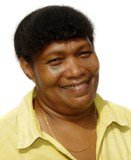 Where was I when I became too busy to write about things happening in SIBC?
Where was I when I became too busy to write about things happening in SIBC?
Well we had just finished a Change Management Course for most staff and we were preparing a number of project proposals to take us into the medium to long term. So we had to have a Strategic Plan and we engaged all the senior staff in this exercise. The result was astounding when staff put their creative minds to it. When it is approved by the Board we will share a summary of it, but not all of it since some if it is commercially sensitive.
[expander_maker more=”Read more” less=”Read less”]For today though I thought I would tell you that our most famous female voice and personality, Moddie Nanau, is about to return from a trip to London to join a conference of the International Planned Parenthood Association. We organized for her to spend some time with the BBC observing how the BBC looks after its home audiences. We are so used to hearing or watching the BBC overseas services that we often forget they have major operations taking care of their own people within the UK.
So we sent some information with her including recordings and the following information about new programs being broadcast and a few more to come:
LANGUS BLO IUMI (OUR LANGUAGES)
We are a nation of about 80 languages and dialects.
This program’s purpose is to let people of different languages learn a few words, phrases or sentences from a different language in SI. This is a hugely popular program and people from towns and villages are keen listeners. It is presented in a generous way with a lot of humour involved for a number of reasons:
– Some old men are not happy that the way young people their language is being modified by young people.
– Some people find words in their own language have different meanings in other languages e.g. in Roviana ‘pokonene’ refers to trousers. People on Malaita thought it referred to underwear!
– Most people enjoy listening to different accents. Some roll the ‘Rs’ like the Irish, some have a lilt like the Scots, some have no J and use Z instead. Some use D wherever a word has R in it. Many more.
– Most of our people can already speak two or three different dialects from their locality and we enjoy learning other languages and dialects.
– Many people realise we have more commonalities in language than differences. The reason is that most of our languages come from the Austronesian family of languages which stretch from Asia thru Melanesia, Micronesia and Polynesia. It is also present in Madagascar in the Indian Ocean.
– There are several languages in our country that have no relatives even within this country. Experts in languages call them Non Austronesian because they are not even related to each other! Among these are Lavukal, Savosavo and Rio of Rendova and a language in Santa Cruz.
SOLOMON PIJIN
This program is about the range of different ways we speak Pijin in Solomon Islands. Sandwiched in between PNG Tok Pisin and Vanuatu’s Bislama, we don’t have a standard way of speaking our Pijin, while theirs are locked in standard dictionaries. This is important when we realise we have so many accents of our own which we apply when speaking Pijin. As it collects new words every year our SI Pijin is the most colourful of all Pijins. Old words are being shortened every year: an example is the original ‘Oloketa’ from the 1950s – deriving from ‘altogether’. It shortened to Oketa in the 80s then ‘Keta and now… ta! is enough to begin a sentence like ‘ta pipol kam na’ – ‘the people are coming’.
BUSY-NESS
This program tells stories of people who started their own business and how they became busy looking after themselves and their families. These are stories of thrift, hard work, persistence, risk and sweat. From the betel nut seller who now owns a fastfood business to the kerosene seller who became a millionaire!
PICTURE OF HOME
Film makers don’t capture images of our villages. And if a picture is worth a thousand words, we try to capture the picture of someone’s home village in a thousand words. People love talking about their home villages, especially those who are stuck in Honiara.
YOUR DREAM
This program is to persuade young people to dream and plan ahead to achieve their dreams. It is supposed to persuade people to save money, plan and strategise. Island lifestyles are very laid back and there is a lot of dependence on government, aid agencies and churches. And young people marry – or at least have children – very young. They are persuaded to not seek personal gratification just because it is possible. Delayed gratification of basic needs and wants can allow young people to accumulate resources to create their own future.
BIG MONEY
Big Money is the story of the tricksters and fraudsters on-line, in our streets and in our communities. Starting with pyramid schemes, the programs tell stories of people who have been defrauded, and information is provide to help people spot frauds. The most notable ones are now online.. in our inboxes. One person in SIBC should be a USD millionaire by now if all the ‘winning tickets’ he has been awarded since January this year were genuine. Women are usually the victims. Other scams are to do with online gambling. These are explained.
ELEKSON FO WAT?
A popular program preparing people for the general elections in November this year. A lot of hard work goes into this. Moddie has been in charge of this
Other programs to come include:
STUCK IN HONIARA. People who are second generation born Honiara dwellers tell their stories about difficulties with languages, with recognising relatives, with observing village customs, with hosting relatives from home… and much more. Being ‘Stuck in Honiara’ will include sad and emotional stories and also heroic stories and also stories of old people who only go home to be buried after a lifetime in the town.
FORGOTTEN HEROES: Our first doctors, lawyers, magistrates, early local businessmen, ship captains, ship owners etc etc.
BORN THIS DAY. Who shares your birthday today? What famous people do?. What did they do.
________________________________________________________
[/expander_maker]Article 21
By Ashley Wickham, September 19 2014
FAMOUS PEOPLE OF SOLOMON ISLANDS
(according to me)
Some of us sit and watch history go by and remember only ‘yesterdays’… memories to be revived for laughter or just nostalgia for ourselves.
Some of us don’t even notice the years going by until teeth begin to loosen, hair changes colour, or our kids or grandchildren begin to ask out loud about where we have been all their lives!
And there are some slow ones like me who sit and work in a place that makes history every day, makes people famous every day and tell stories of only some of the wonderful and famous people we have met on our way.
This realization hit me today when Moses Aru Graziano came visiting at SIBC this week and we had a ‘stori’. Most of it was followed by laughter. We noticed that our hair colour had changed and that half the teeth had gone wakabaot! But we remembered the stories of his performances in the 1970s and 1980s
It has been a great pleasure to have met many famous and significant people along the way during my career: let me just mention some of those people.
In Broadcasting from the 1960s and 70s there were Roy Kelosi, Bill Bennett, Luke Susuta, Ellison Tangarau. David Welchman Gegeo worked with in SIBS in 1969/70 before he went off to study. In later years Patteson Mae, David Balue, Connie Manele, Tina Lemazi.
In Government: Dr. John Wesley Kere, Silas Sitai (our first magistrate) Sir Fred Osifelo (our first Speaker), Francis Aqorau (our first graduate) Sir Lloyd Maepeza Gina, Sir Mariano Kelesi, Sir David Kausimae, Sir David Dawea-Taukalo, Mr. Willie Betu, Mr. Gordon Siama, Jr. Johnathan Fifi’I, Mr. Salana Ga’a, Mr. Nelson Kifo, Mr. Gerry Buare, Mr. Moffat Bonunga, Mr. Tom Titiulu, Fr. Lesley Fugui, Mrs. Lily Ogatina Poznanski and many more.
In the music industry: Solomon Dakei, Ms. Hetty Bea, Joseph Nona, Kiko Willy Ngoro, Edwin Sitori, Fred Maedola, Jim Baku, Joseph Kokobi (who introduced polyphonic custom music to SIBS in the early 70s), Isaac Houma (who brought the first Are’Are panpipe band to Honiara in 1978), Tomas Giosia (who also designed the national flag.
In community leadership Dominic Otuana, Bishop Sir Dudley Tuti, Archbishop Sir Ellison Pogo, Dr. John Roughan, Abraham Baeanisia, Rev. Leslie Boseto, Archbishop Adrian Smith, Pastor Titus Rore.
In Police: Silverio Otuana, John Kabwere, John Piatanga Homelo, Aloysius Ora
In the arts: Frank Haikiu, Charles Manata (also a famous musician),
In the medical services there have been so many and there are still so many including Dr. J W Kere, Dr. Francis Kikolo, Dr. E. Tekieru. All outstanding and ably represented by Dr. Sir Nathan Kere PhD.
In Education: Rev. Bill Gina, Stephen Sipolo, Mostyn Habu
In the Diplomatic Service: Francis Bugotu, Wilson Ifunaoa, Dr. Jimmie Rogers
In Shipping: Capt. John Tepaika, Captain John Filei, Captain Philip Otto, Captain Billy Pilua, Captain Pelopi Lomae, Capt. John Katalake, Captain James Murdoch
I remember too some fine men I worked with in 1967 in Ports Authority like John Pidoke, James Vaukei, Jack Anisiringi, John Kwaeota, Moses Ofu, James Kili, David Sade, Jack Tuita.
I will finish this list later. There are many whose names have yet to emerge in my memory. These are the ones I met and talked with. Other people will have their lists as well.
______________________________________________________________
Article 20
By Ashley Wickham, July 25 2014
SIBC ON THE MOVE… again!
Since the launching of the SIBC brand on July 11th, a number of things have happened.
On July 25th we took delivery – on behalf of SIG – of a fine new dual frequency transmitter donated by the government and people of Japan. It was manufactured by Hitachi Kokusai Electric Inc. of Tokyo Japan and can be expected to serve us for at least ten years. Already we are receiving good reports of reception from within the country and from overseas.
CHOISEUL TOUR. Soon after the handover two SIBC staff toured Choiseul Province by powered canoe and obtained a wealth of material for broadcasts. News Editor Leni Dalavera and Presenter Mirriam Basia visited nearly but not all major villages around the island, including the inland village Oliveti five hours walk from the coast. Choiseul Premier Jackson Kiloe and his staff were most supportive as were village Chiefs and Elders. The only major settlement not yet visited is Wagina (Vaghena) island in the Katupika area. We plan to send someone to visit this community of nearly five thousand people before the year ends.
Choiseul is the sixth largest island in the Solomons. A mountainous forest-clad island, 128 kilometres long and 32 across at its widest point, it lies between Bougainville and Isabel in the northeast of the Solomons and opposite the Shortland and Treasury Islands and Vella Lavella. The two large islands in the south are Vaghena and Rob Roy. The highest point on Choiseul is Mt. Maetambe reaching 1,066 metres near the island’s centre. Other peaks in the central spine reach 459 to 600 metres. There is little flat land and the interior has many deep valleys. The SIBC touring team found that the quality and numbers of radio receivers in villages was not as good as some years ago. They presented new receivers to a number of village elders to ensure they hear weather and tsunami warnings and also the daily news and many cultural and educational programs broadcast from Honiara.
Solomon’s latest knight is from Choiseul: Dr. Sir Nathan Kere PhD. Medical Scientist, General Practitioner, Community Leader/Tribal Chief and International Rotarian. He was awarded the knighthood by Her Majesty the Queen on the occasion of her official birthday in June.
Leni and Mirriam arrived back from Choiseul on Sunday and the very next day (4th August) joined twenty other staff in a Change Management Course run for SIBC by two experienced professionals Bill Synnot of Brisbane and Taito Tabaleka of Fiji. More about this in next week’s article.
Soon their recorded materials including string bands, choirs, interviews with people of Choiseul will be heard all over the country.
SIBC is now planning for a tour of Makira and Ulawa in late August or when the weather is most favourable.
___________________________________________________
Article 19
By Ashley Wickham, July 25 2014
THE MACRO STORIES
You will have read in the papers or heard on radio that about 16 children have died because of diarrhea a few months ago and that there was a national diarrhea epidemic. I encourage my staff to look beyond the immediate news report and to research events and issues and analyse them critically. I sent the following out soon after the news report.
‘There is a macro or big picture issue behind every story in the news. e.g. the diarrhea outbreak! Honiara has infected nearly all provinces with diarrhea. Honiara does not have proper toilet facilities for the public. Every back road, every creek and the other side of every tree are used as toilets. Many houses do not have septic tanks just pit latrines – the result of unplanned settlements. Many have overflowing septic tanks – the result of overcrowding. Rich people have four or five people per dwelling unit. Low wage earners have their own nuclear family plus the extended family for a number of reasons one of which is that all schools in Honiara have trained teachers and rural areas not.
The sewerage system installed in Honiara in the 70s and 80s broke down more than 20 years ago. This is why there are signs warning people about polluted seawater in front of the city. The very dust in Honiara carries germs from open defecation and betel nut spitting. Unicef is conducting a major awareness program about Water and Sanitation encouraging youth to wash their hands and boil drinking water. The situation in the provinces is becoming worse over the years. The old practice of using mangroves or specially designated areas for defecation now contributes a threat because of population pressure.
Meanwhile the World Bank and Asian Dev Bank promote policies of economic agglomeration by which they promote policies and projects that focus on the urban areas where many young people have moved to e.g. rapid employment project. Why? Have they given up on ‘rural development’ because it is not working? Why? Because of land disputes that hold up investment in rural areas? Why land disputes when we should all know our land boundaries? More questions and the answers unfold as we continue to ask the questions. Why are we arguing about land? Different communities will have their answers. What are the commonalities? Why is it happening to nearly every community?
Our job in media is to analyse why all these things are happening and help our people understand not only what is happening to them but why. When we deal with one land dispute or one disease outbreak we are dealing with micro – or small picture – issues. When we investigate them critically and with careful analysis at the macro or big picture level we can help our people understand. The solutions are in their hands, but if they don’t have the full and broadest information, they will continue to be victims.
Everyone in Honiara has a story about diarrhea. One of our staff recently went to see her aged father who was very ill in her home island. Her two grandchildren went with her. They were sick on the boat across and a day after arrival had to be admitted to hospital for treatment. They spent five days in Hospital and returned to Honiara ahead of schedule underweight and miserable without spending much time with the old man who died later.
_______________________________________________________________
Article 18
By Ashley Wickham, July 18 2014
The flag is flying again but challenges loom as we press onward
As readers can see the national flag is flying once again and we have made several improvements to the offices and surrounding areas at Rove. It was part of our rebranding. It is meant to show that SIBC is moving up and stepping up to improved standards.
Some excerpts from the Prime Ministers speech and also from the Chairman of the Board of Directors can be heard at this link SIBC rebranding Speech
.These speeches were made at the launch of the new SIBC brand last Friday 11 July. We are very thankful for the encouraging words of the Prime Minister and the Board Chairman’s description of the directions in which SIBC is headed.
There are many photos taken by our staff and others which we hope you will enjoy.
I mentioned in a memorandum to staff early this week that the preparations we made last year and early this year were like ‘getting ready’ for big things to come. When the launch took place last week, it was as though our Directors and the Prime Minister told us to ‘get set’.
And from 14th July, management and staff are meant to ‘go’ .. as in to get going and carry out what is required of us to higher levels of professionalism, with greater efficiency and with more commitment to quality service to our listeners.
So we started the week with the following major exercises: i) revision of our Sales and Marketing systems and processes with the help of consultant Mr. Joseph Waleanisia ii) deciding our approach to programming to help in the coming General Elections and iii) to prepare the planned roll out of the national FM network to all provinces.
The build up to the General Election. SIBC has covered several general elections since Independence in July 1978. Each general election brings expectations and it can reasonably be said that people always expect something new and better with each succeeding GE. Whether or not they have always been happy with the outcomes is debatable. What is known is that many people are persuaded to vote for candidates who give cash or materials to voters or for their villages and communities.
Our political system used to be based on the understanding that village chiefs and elders look after villages, that provincial assembly members look after their province and Members of Parliament look after our country – Solomon Islands. Many observers find that most people vote for MPs for personal and not national reasons.
SIBC’s radio coverage in the past has been characterized by programs in which eminent persons, academics and retired politicians discus the elections from different perspectives and generally encourage people to vote wisely.
SIBC has a mandate to provide information, entertainment and education to people of Solomon Islands and in the past the focus seems to have been on information provision to voters and people generally. This time SIBC will focus its initiatives on an educational approach.
Why? It is recognized that literacy and numeracy levels and the country’s general development condition are below that of most Pacific Island countries. The average level of education is F3 or lower. Most people have not had the benefit of a full secondary education before leaving school. Their vocabulary (or range of words) is limited to that from their last schooling experience and include words they have picked up since.
There is also the common problem described by Nobel Prize winner for economics in 2001 Joseph Stiglitz as ‘Information Asymmetry’ which causes misinforming in the communication processes. Information asymmetry is in contrast to perfect information which is a key assumption in neo-classical economics.
Another is the problem of confused or distorted definitions. Mainly due to limited education, people use words without knowing the range of meanings attached to them. Thus ‘politics’ is now synonymous with ‘corruption’ and its original meaning that politics is the discussion, debate, negotiation and agreement between people about how they ought to look after themselves and each other (Crick B. 2002 In Defense of Politics) is not understood.
In brief, it is likely that the vast majority of our people do not have sufficient words and definitions to use the English language to their advantage. With Pijin having no standard dictionary, it is not sufficiently precise. We have more than eighty dialects and languages which we use in our home language areas. Therefore it is very possible that much of the discussion in the communities during the campaign does not reach the definition of how to look after ourselves, each other and our country. More likely it is about how to make some personal gains by supporting one or another candidate.
So SIBC will set out to introduce listeners to elementary terms and phrases used in discussing politics – our debates, discussions, contests, negotiations and agreements about how we should look after our country.
There is one major impediment to success in this approach. Evidence is mounting that few people have radio receivers in each village of which there are more than five thousand. If this is widespread, a lot of our programs and initiatives will go to waste. We must act to ensure every village community has a radio receiver. So SIBC is hastily mounting a country-wide survey to determine how many people listen to its programs regularly. If the numbers show that the economy has become so withered in rural locations that people can no longer afford radio receivers with shortwave capacity, initiatives must be taken to bring them into the national conversation or the lack of information and understanding will continue to be a major problem.
We have established a working group that will do all the programming and this is what we are preparing to do in the build-up to the general elections.
AUGUST Weeks 1 to 4.
PROGRAMS
AN INTRODUCTION TO POLITICS
– WORDS AND DEFINITIONS THAT VOTERS WILL FIND USEFUL [SIBC writers]
– BASIC STATISTICS. POPULATION AND GROWTH RATE [Govt Statistician].
– ECONOMIC INDICATORS (GDP. EXPORTS AND IMPORTS) [Kikiolo at CBSI]
DESCRIBE THE POLITICAL SITUATION WE HAVE NOW
Trends of voting up till now. (various references)
– What outcome does SIEC want to see?
– What outcome do Churches and community leaders like to see?
– What outcomes do political leaders want to see?
– What outcomes do our academics and senior citizens want to see?
DESCRIBE THE POLITICAL SYSTEM WE HAVE NOW.
– What will be different from last time?
– How will integrity of system be assured? Who will look after this?
– How will political stability be assured, or will the outcome be like last time?
DESCRIBE THE MOST IMPORTANT ISSUES THAT LEADERSHIP OF THE COUNTRY MUST DEAL WITH SUCCESSFULLY (these will include economic issues)
– Governor of Central Bank
– Chairman of the Chamber of Commerce and Industries
– Senior local businessmen
– Chairman of SI Christian Association
– Chair Development Services Exchange
– President of the National Council of Women
– Premiers of all Provinces
– (all above programs will be repeated three times each at different times)
SEPTEMBER Weeks 1 and 2
VOX POP SERIES
Ask the same groups of people in all provinces the same question and let the public listen to these vox pops (Voices of People). Questions must be scripted and asked the same way each time.
e.g. Fifty year old man, Fifty year old woman, 25 year old man, 25 year old woman
15 year old boy and 15 year old girl. (six people answer the same question) All must be from different backgrounds e.g. village man, town woman, village girl, village boy, unemployed girl youth, unemployed boy youth. Also mix in labourer taxi driver, storeman, housegirl, public servant, businessman/woman.
One example question; ‘for you seleva (personally), wanem nao iu laek lukim happen afta big elekson blo iumi? Hao nao iu ting fo iu benefit?’
Another question; ‘wanem nao waka blo member blo iu?’
Another question begins… ‘mi laek save wanem nao iu ting hemi waka blo honorable member who bae winim elekson? Hem waka for iu, hem waka for village blo iu, hem waka for island blo iu, hem waka for province blo iu or hem waka for kandere blo iumi?
Other questions can be used.
SEPTEMBER Weeks 3 and 4
TALK BACK PROGRAMS (2)
ANALYSIS, DISCUSSION, COMMENTARY ON POLITICAL ISSUES. Callers will be allowed to phone or text to the Discussants. Moderator …………..
Eminent persons e.g. Governor of Central Bank, retired MP and former PM Sir Francis Hilly, retired MP and former PM Sir Peter Kenilorea, paramount chief and peace mediator Sir Paul Tovua, paramount chief and medical specialist Dr. Sir Nathan Kere, former Cabinet Secretary Ms. Ruth Liloqula, Women’s activist and academic Dr. Alice Pollard, Telekom CEO and Chair of SIBC Mr. Loyley Ngira and youth activist Redley Raramo.
BRIEFING OF ALL STRINGERS
OCTOBER. Week 1
PARTIES Q & A SESSION ON SIBC (2)
All registered political parties and a representative of the government, opposition and Independent group are represented in this QA session moderated by ……
In these sessions, party representatives will answer questions from an audience of selected media, SINU academics and citizen activists e.g. women, youth, FSI and from callers (phone or text).
GENERAL ELECTIONS (sometime in October)
Reporting the results (NCA)
Analysis (Production)
Lobbying and formation of the government (NCA)
Election of Prime Minister (OB – News)
Election of Speaker (OB – News)
Election of Opposition Leader (OB – News)
Swearing in (OB – News)
________________________________________________________
Article 17
By Ashley Wickham, July 4 2014
SOLOMON ISLANDS 36TH INDEPENDENCE ANNIVERSARY 7th JULY
GIVING VOICE TO FEELINGS, EMOTIONS, OR JUST DESCRIBING 36 YEARS OF AN INDEPENDENT SOLOMON ISLANDS
A large group of creative people plus other hopefuls have been busy composing to give voice to their feelings about this country, themselves and their circumstances on this our 36th anniversary of Independence on July 7th. You will hear some of those songs soon.
We at SIBC believe this is a time when composers, musicians and performers as well as writers and broadcasters reflect on themselves, their children, their good luck, missed opportunities, their perceptions about leadership in families, landowning groups, politics and government.
As we were preparing for the approaching Independence anniversary, some of us in our 50s and 60s found ourselves singing or humming the old Independence favourites e.g. Nomoa Army Nomoa Navy and Moonrock by – Charles Manata and the Sevenths (a list of other songs is below).
These songs will continue to warm the hearts of all who were teenagers and adults in 1978. These were special songs that told of the questions and emotions of the times. Now after thirty six years, we realize that although some of our own children might have heard these songs before, their generations have not had a chance to contribute new songs. So we planned SIBC’s Song Competition on the theme: 36years of Independence: What it means today and what we expect for our tomorrows.
We were gathered together as a group of protected islands in 1893. Previously our island groups had relationships with each other through marriage and warfare. Now we are interconnected in the economy, through church networks and government activities. Most of our languages and dialects have similar words and many of us understand several dialects.
Our forefathers once lived traditional lives but set aside their old beliefs and learned to accept new religious beliefs. They went to schools together, travelled peacefully to each other’s islands and learned to work together. From subsistence lifestyles of gardening and fishing, people began trading resources of land, reef and sea. Some began digging for gold and other minerals. Many cut down and sold virgin trees for export. They learned how to earn money and use money. Many lost money but some made good businesses.
Our children and grandchildren have grown up together. There are thousands married to men or women from other islands and language groups. We are networked and happy. We have come a long way together, mostly we laughed together but we cried when some of us had our disagreements and fought, but we have overcome these. We understand each other and we understand the pressures on each other.
These are good reasons to celebrate and remember that as a country, we are only 36 years old. There is so much future in front of us!
Let us sing about how we feel as Solomon Islanders: about what we hope for our children; what we want for our village, what we want for our provinces and what we want for our country. Let us also sing about what we expect from our leaders and what we expect from our government.
ENTRY: open to all citizens of Solomon Islands. Free.
CATEGORIES: 8 categories – male and female. Entrants can submit up to three songs each.
- String bands
- Panpipes/bamboo bands with singers
- Modern bands
- Youth from 15 to 25 years
DISTRIBUTION: Special Prizes will be awarded to entrants from each of nine Provinces
LANGUAGE: SI Pijin and dialects/languages combined. Some English permissible
MUSIC STYLE: Island strings, island rock, reggae, hip hop
PRIZES:
- 8 for males 8 for females in the four categories (1st and 2nd)
- 9 special prizes for provincial entries (who can also win in other categories).
- 4 for winners in each music style (who can also win in other categories)
LOGISTICS:
All entrants will submit their entries on CD or flash drive, or record in SIBC Lata, SIBC Gizo or SIBC Honiara. The entry need not be a perfect recording but judges need to hear the melody, the words and how the instruments (including voice) are used.
After the winners are announced SIBC will arrange to have them recorded professionally.
JUDGING: SIBC personnel will make up the judging panel and they will ask listeners to vote by text to our mobile phone numbers in our studios.
LEGALITIES: The composers and performers will own their work in terms of copyright but as a condition of their entry, they will grant permission for SIBC to use all entries in its programming. A legal agreement will be entered into.
OVERSEAS ENTRANTS: Please send your entries. Send your thoughts and feelings in song or as lyrics, poetry or short stories that we can share with listeners and viewers of our website.
Here is a list of songs composed 36 years ago and which will be heard again on SIBC on July 7th this year.
HAPPY 36TH ANNIVERSARY TO ALL INDEPENDENT SOLOMON ISLANDERS!
- History In Song – Bystanders
- Solomon You Look Ahead – Alex Bartlett
- Independence Year – Charles Manata & The Sevenths. Also known as’ Nomoa Ami Nomoa Nevi’
- Moon Rock (America’s Independence gift) – Charles Manata
- Congratulations Solomon Islands – King George VI Students
- God Bless Solomons – Alex Bartlett
- Independence Song – (Late) Wayne Sade
- Solomon Islands Flag – Mavela
- Independence Song – Robert Wilson Aioro
- Independence Song – Tom Stranger
- Solomon Islands Independence Day – Thomas Giosia
- Welcome – Mike Belo
- Independence Song – Charles Manata
- Independence Song – HM Long
If you want to buy all or a selection of these famous songs, contact Librarian Salei Rukasi srukasi@sibc.com.sb or phone 20051.
____________________________________________________________________
Article 16
By Ashley Wickham, June 20 2014
Rebranding SIBC
In just over two weeks time we will launch the rebranding of SIBC in a small but special ceremony involving Government leaders, our Board of Directors and business and community leaders.
We will introduce them to a new notion, a new idea, a new appreciation of SIBC that has come about from a decision of the new Board of SIBC appointed in April last year.
For more than twenty years SIBC has been shackled by high overheads that weighed heavily on past managements. The main instrument to unshackle SIBC was the State Owned Enterprises Act of 2007 which described anew how government, as the sole owner of these utilities, wanted them to operate as SOEs. It was not difficult to appreciate that government wanted its utilities providers to operate efficiently and produce quality products consistently and aim to turn a profit.
So that’s what SIBC is gearing up toward. We spent nearly fourteen months re-organising, restructuring, reformatting and generally preparing ourselves to launch a new SIBC.
We believe that by the end of this year, SIBC will again be a prominent national institution that most listeners tune to at least two or three times a day to hear our premium products such as our highly rated news and current affairs bulletins.
Older programs are being dusted up from the library shelves to be programmed again for new generations of listeners. They will hear such programs as ‘Mae Karange’ – snippets about weird and wonderful things and happenings – ‘Custom Story’ which tells traditional folklore from all over the country and several new outstanding programs about identities, languages – with a special focus on our very creative Pijin – business, development, our wonderful local music – both string bands and pop and an international weekly download of a selection of rising top hits.
SIBC is committed to gender equity and helping people work toward reducing the high incidence of violence against women and girls. Drama is to return and also comedy both of which SIBC was famous for in the 1980s.
Meanwhile we have to raise our income levels and we have a new Head of Sales in Gloria Hong and a special contractor in Colin Leafasia who is spearheading the new commercial sounds.
The major impact we hope will be noticeable from the re-branding will be in the station sound that will differentiate SIBC from other stations and from its past middle-age sound.
People will hear an SIBC with a youthful sound deriving from well pre-selected daily playlists that provide a modified adult contemporary format. Modified – because we aim to have a straight 50 – 50 ratio of local music to overseas music. This is possible because there is a huge repository of local music in our library from which the best in terms of composition and production quality will find their way into the daily playlists regularly instead of being out of mind, out of sight and out of hearing. We will have specially trained Music Programmers working to ensure we provide the best combination of music for our listeners. More about them later.
This is hard work because we have a lot of competition from the new technologies. Many – maybe even the majority of people – in Honiara have been so taken by free-to-air television that they’ve forgotten about SIBC. Still many others – the young – have their favourites recorded on their mobile phonesl
The old notion that Pacific Islanders lay around, sleep, eat and play in the sea and the jungle every day holds no truth anymore – if it ever had any ring of truth before. We have to earn money to buy food, school materials and all the ‘things’ that we have gotten used to buying and using, living as we do on the fringes of the globalised market. So people don’t spend ten or seventeen hours a day listening to radio unless they have money for batteries and are bedridden.
If they are not, they are fishing, tending their cash crop gardens, animals, gathering coconuts, cocoa etc. In short they are busy hustling for money.
Rural people make up 85% of the population. Most urban people in Honiara, Auki, Gizo, Tulagi and Noro are able to watch TV, which still being novel, holds their attention most hours of the day. TV stations are 24X7. There is more to come.
I just heard from Elisabeth Sade who has just returned from vacation in northern Malaita that hundreds, possibly thousands of her people will travel to Honiara and Auki to stay with relatives so they can watch the world cup soccer. We can expect this to happen again when the Olympics comes around.
There will be a lot of crowded houses!
________________________________________________________________
Article 15
By Ashley Wickham, May 30 2014
BROADCASTERS ARE IN THE PACKAGING BUSINESS!
This is a note I shared with staff last week. I used it in my training role with the SPC in the late 90s. It’s inspired by an article I read about Peter Drucker the famous American management guru of the 1970S, 80s and 90s who invented the concept of “management by objectives”. People hung on every word he used so it was a surprise to British directors of a famous glass making company that hired him for his marketing advice when he asked them what kind of business they were involved in. He was gruffly told what appeared to be the obvious: the company manufactured glass.
He said if they thought about it carefully, they were really in the ‘packaging business’ because all the glass they were making were to contain liquids, foods, flowers or other things. This realization caused the board of directors to have a new look at their range of products and adjust their marketing appropriately and to their corporate satisfaction.
Broadcasters we might be and broadcasting is what we do, but are we not really ‘packaging’ information, education and entertainment for delivery to listeners? Radio waves, like delivery trucks, boats and aircraft are the means of delivery. They carry our packages of information to the listener.
If you received a package of ‘stuff’ every day for a year and maybe for many years, and if the packaging was the same style and design, using the same materials, using same words and decorations, no one would be surprised if you felt bored, inattentive and tired of receiving the same thing? You might even lose all interest in those gifts.
This is the reason we have to pay special attention to change (e.g. demographics) among our clients, to musical influences that affect choice of music, to emerging technologies that compete for the attention of people who we want to listen to our ‘packages’ and to creativity, the ability to open our minds and express new ideas, expressions, accents, styles of writing and singing etc.
Everyone in a radio station must be reading books and magazines and online websites, viewing (and listening to the dialogue on) TV, listening to other radio, talking with other people (outside our usual friends, church and family groups) in order to absorb what is being discussed or taking place.
The growing population is getting smarter with more and better education and technology. If we cannot keep up with them, they will be bored by what we produce. One way to keep up with them is to engage them in programs so their voices and their views are heard. It is they who are the voice of the nation and we must reflect their voices back to them.
________________________________________________________________
Article 14
By Ashley Wickham, May 23 2014
HONIARA’ THE BAD GUY!
I am not one who would watch every action movie or TV series over so many years and be able to draw comparisons, but one that aired on Australia Network TV earlier this year caught the attention of quite a few of us in Solomon Islands.
It was one in the series of Police action programs called “Rush” and some members of my household enjoyed the programs.
They enjoyed it even more when the name of a particularly bad criminal, gangster and stand-over man was mentioned. His name? “Honiara”. They finally got him by the end of the program, but my imagination began running wild.
What if, in a sequel, New York or London came looking for Honiara? Then Moscow would appear as the guy with a one-sided limp as though his right arm hadn’t stopped growing at the same time as the other.
In jail, Honiara would be too heavy for soccer, so they have a rugby team captained by Suva with Wellington the Kiwi referee among the correctional service staff who once served at Rove or Tetere (two places Honiara might be familiar with).
It wouldn’t be too long before Australia’s most vicious and sadistic killer enters the scene. He has just been fingered by the lady cops working with a bearded singing transvestite from Austria. The Aussie killer loved the old Hitchcock thriller Psycho and had begun his diabolical planning to slit the guy/gal’s throat in the shower.
Yes… Killer Can Berra was ready to pounce! Who will stop him? Tokyo, Jakarta, Beijing and others are waiting to get the tap on the shoulder before they move. There is going to be a bloodbath or conflagration – all because of Honiara!
I invite others to write other episodes to continue this new series.
___________________________________________________________________________
Article 13
By Ashley Wickham, May 16 2014
DANGEROUS DIETS
A colleague of ours lost his wife to ill health this week and brought home to us that so many people’s lives are cut short by illness. Last year SIBC lost two senior journalists Joseph Inomae and News Editor Walter Nalangu who were at the prime of their lives.
In nearly every village there are people who are becoming ill or saying goodbye to their loved ones.
The most insidious and widespread cause of early deaths are what used to be called urban lifestyle diseases. The urban diet has however spread throughout the country and every week boatload after boatload of polished rice, flour, noodles, biscuits, tobacco, beer and alcohol can be seen leaving Point Cruz for rural villages. The villages are awash with urban cargo, mainly processed foods of little nutritious value, including junk foods, drinks and sweets that hasten disease and death.
Government, health and community leaders seem to be powerless to slow down this nation-wide problem. Hospitals wards are overcrowded.
When I was manager of SIBC in the 70s and 80s we continued a tradition of programs promoting good health that started in the 1960s when Dr. Gideon Zoloveke was the presenter of a popular program. In the 1980s we persuaded Dr. Eritara Tekieru to become SIBC’s Radio Doctor and he enthralled listeners with his advice for good health. Others were to follow.
I left SIBC to work for the then South Pacific Commission in 1986 and soon became involved in training health educators to meet the expected HIV pandemic and the urban lifestyle diseases upsurge. Well HIV has been successfully dealt with but not the other.
Now that I am back in SIBC again, I cannot but help thinking that a lot of effort to forewarn people and give them good advice so they can stay healthy has been wasted.
People take notice, it seems, but only for a short while and then they are back to old habits. They only begin to take notice again when they become sick. How do I know? It happened to me. In the past ten years I have cut out sugar and salt, have very little rice, no noodles and very little flour products. Yet I need to take a couple of tablets a day to keep my blood sugars down and my arteries from getting blocked!
So what can radio do to keep people (like me!) thinking about keeping healthy? Not much I suppose. But it leads me to think the best people to talk about avoiding illness or ill health are those who are suffering at this time. The healthy people need to hear their stories.
There are some health crusaders in our midst like Dr. Douglas Pikacha and Nelson and Joy Koroi who devote a lot of their own time and resources to tell people how to avoid becoming ill from poor nutrition. I plan to get in touch with them soon so they can persuade some of their patients to tell their stories – every day!
It’s going to be hard for people to change their eating and drinking habits, but we have no choice. Change has to start at home. Parents must take the lead in choosing food and drinks and how to cook.
Many of our health problems arise from what we put in our mouths. We are so used to making our mouths happy that we forget the damage it does to us.
_______________________________________________________________________________
Article 12
By Ashley Wickham, May 09 2014
SHORT STORY OF THE WEEK
Tome is one of the security guards at Fighter One – where all the SIBC transmitters, masts and antennae are located. During World War 2 there were three runways, one at Fighter 1, the main one at Henderson and Fighter 2 where the Honiara Golf Club is now located.
When the JICA President visited the SIBC installations this week to see the new SW transmitter his agency had donated, he visited what was once called Fighter 1.
After he left, Chief Engineer Patrick Tibaua and I chatted with Tome who said he was extending his small leaf house and that he had dug up a bomb in doing so. Journalist Fred Kusu was with us so we suggested we go to his house to see the bomb and take a photograph.
Ah but I have moved it!’ said Tome. ‘I moved it closer to your house Patrick!’ I could see Patrick shudder then he asked why move it closer to his house? Tome quickly sought to reassure him saying ‘Don’t worry Patrick. I moved near your house but it is pointing to Mana’s house (about a 100 metres away) !’ Clearly he thought the bomb would launch a projectile!
Tome couldn’t tell us was whether the bomb was of Japanese or American origins. But he knew how heavy it was: ‘heavy like three big bags of rice’ he said. It’s probably a 100 pounder! Now it’s over to the Police bomb disposal unit.
It’s amazing that wartime ammunition can still be found. The main airstrip was much fought for as it was the Imperial Japanese forces who started building it. After the American forces landed at Red Beach in August 1942 they completed the construction. It was then subjected to numerous air attacks by Japanese bombers.
Attached you can see a small map showing the three wartime runways. Also there is a link here to the wartime diary of Jack Clark an American soldier who was senior beachmaster at Red Beach when the marines landed to capture Henderson airstrip. Jack Clark Diary(Pdf)
____________________________________________________________________________________________________
Article 11
By Ashley Wickham, May 01 2014
A SUMMARY OF THE WEEK THAT WAS.
It was difficult to start this article as there were so many things happening in broadcasting, in governance, in society, in Parliament and in our many communities. This article tries to segue between the many events taking place.
Ahead of us next week is the visit by the President of the Japanese International Cooperation Agency (JICA) to Solomon Islands. Among several projects facilitated and funded by Japan through JICA was a dual frequency transmitter for use in disaster preparedness and response. The project is not quite completed but SIBC has already been using the Hitachi transmitter on 9545 kHz which is the frequency that reaches the whole country in daylight hours.
When fully operational by August this year, the transmitter can switch to broadcast on our early morning and night time frequency 5020 kHz. JICA also equipped the National Disaster and Management Organisation (NDMO) with a small studio facility at its Vavaya ridge offices which can be used by NDMO and SIBC staff to broadcast directly from the National Emergency Operations Centre (NEOC).
The JICA President’s visit comes a week after a successful visit by a Taiwanese naval vessel which brought supplies and materials for victims of the recent floods in Honiara and outside in the Guadalcanal Plains.
The Matanikau and other rivers on the plains are flowing normally now but government has quickly moved to begin investigations into breeches of environmental regulations that have occurred and which might have given rise to the extensive floods. Those following our news bulletins on this website will have seen the report of the formation of a high level task force to crackdown on environmental crime. The initiative is in response to increased illegal logging activities e.g. logging without development consent, logging close to streams or failing to rehabilitate log pond areas.
In the past week we have heard that New Zealand will import a Bailey bridge to replace the older Bailey bridge that served for at least fifty years. The strength, adaptability and utility of the Bailey bridge are described in a number of websites which can be googled. I have worked in Honiara on and off over fifty years and the old bridge served us well until brought down by recent floods.
Without the older bridge traffic in Honiara at anytime between 8 am and 8 pm crawls at a snail’s pace. There surely are other ways to manage the flow of traffic but our local authorities have yet to find them. I have two suggestions: ban all heavy vehicles from using the bridge and approaches during daylight hours. Perhaps they should only operate after main traffic flows have died down. The other thought is to start schools at 9:30am instead of at 8:30. Other people may have other ideas. Feel free to share. Never before has driving Honiara been so uncomfortable and unattractive.
Many people remembered to buy radios to listen to SIBC for storm, flood and tsunami warnings so SIBC has had an upsurge in listeners to add to maybe a couple of thousand or more people who are stuck in traffic at least twice every day and maintain their sanity by listening to radio.
Our composers, performers and music producers over the years have come up with exceptionally creative music, many of which have become popular overseas. Right now there are several great songs on air including the fabulous ‘Noelyn’ by the Rainbow Boys of Aligegeo near Auki. Check it and other great local compositions on any of our frequencies.
And the final turn in this article is to report that SIBC and other media as well as representatives of composers, artists and record labels have been meeting with consultants from the World Intellectual Property Organisation. The objective: to work towards a system whereby the owners of intellectual works (composers, artists, producers) are rewarded for their contributions to society.
Happy listening!
__________________________________________________________________________________________________
Article 10
By Ashley Wickham, April 24 2014
RAVAGED AND DAMAGED AGAIN AFTER 28 YEARS – THE GUADALCANAL PLAINS
Often thought of as the breadbasket of the capital, the Guadalcanal plains hinterlands rise to the foothills of the great mountains Popomanaseu and Makarakoburu. Popomanaseu at 2335 metres is slightly higher than Australia’s Kosciusko at 2228 metres.
These plain lands are homes to thousands of people who make a living from vegetable and root crop gardening, piggeries and poultry farms for the Honiara markets, who also lease land to the palm oil plantation for the overseas market. Many rivers and streams run through the plains and people sell river gravel aggregate for road and airstrip surfacing among many other projects like rice-growing, cocoa, coconuts etc.
And people from the Tenaru river area eastwards are suffering, just as they and their parents did in 1986 when Cyclone Namu hung around for nearly a week over the area and caused widespread flooding.
One hundred and one people died in the floods from cyclone Namu 28 years ago. The whole of the plains area was flooded and people and their homes washed downstream. The palm oil plantations on the plains were severely damaged. Villagers there, on nearby Malaita and in other areas of Guadalcanal lost their food gardens. Significant stands of valuable forests were brought down in Isabel.
A huge loss was the rice farm run by Brewers Solomons Associates (BSA) an American company which had taken over from an Australian owned company Guadalcanal Plains rice Ltd (GPL). BSA had opened up markets in Fiji, Vanuatu and had even send a trial shipment to the UK before Cyclone Namu came and swept everything away.
Several reports describe the damage to the plains. This description is on Wikipedia
Severe Tropical Cyclone Namu was considered to be the worst tropical cyclone to have affected the Solomon Islands on record. On May 15, 1986, a tropical depression formed within the monsoon trough. Located north of the Solomon Islands, the storm steadily intensified while meandering. After briefly moving west, the storm attained Category 2 intensity on the Australian intensity scale on May 18 as it moved through the island chain the next day. Cyclone Namu attained peak intensity of 120 km/h (75 mph). After keeping peak intensity for a day, Namu turned south and weakened steadily. By May 21, the winds of Cyclone Namu had been reduced to only 80 km/h (50 mph). Continuing to weaken, Namu turned east and dissipated the next day away from the island chain.
The storm’s slow motion allowed for prolonged periods of heavy rainfall, resulting in phenomenal flooding across the Solomon Islands. The islands of Malaita and Guadalcanal experienced the most significant damage from Namu. Coastal areas of the former were severely damaged by rough seas and strong winds, especially along the eastern side where entire villages were destroyed. Meanwhile, on the island of Guadalcanal, a village of 43 people had only 5 survivors. Moreover, Cyclone Namu flooded 75% of the Guadalcanal’s plains. In addition, 22% of homes were either damaged or destroyed on the island.
Across the Solomon Island group, schools, buildings, electricity, water supplies, roads, communication systems, forests, and agriculture sustained widespread damage. In some regions, nearly all homes were destroyed. Mudslides destroyed roads, bridges, water pipes and drainage systems. Crops such as cocoa, copra, and rice were destroyed. Villages throughout the entire island group sustained severe damage. Overall, approximately 90,000 people, one third of the country’s population, were reported as homeless. In all, Cyclone Namu was responsible for at least 150 deaths, mostly from flooding and landslides. Property damage and economic losses across the Solomon Islands totaled $25 million and $100 million (1986 USD) respectively.
REFERENCES
Cameron McNamara, 1986. The effects of Cyclone Namu on Ngalimbiu
River bridge, Solomon Islands. Report to Solomon Islands Ministry of
Works and Public Utilities. Honiara, Solomon Islands.
Hansell, J. R. F., Wall, J. R. D., 1974. The British Solomon Islands
Protectorate Volume 2. Guadalcanal and the Florida Islands. Land
Resources Study 18. Land Resources Division, Ministry of Overseas
Development, Surbiton, England.
National Disaster Council, 1986. Report on Cyclone Namu. Solomon Islands
Government, Honiara, Solomon Islands.
Stephens, P. R., Trustrum, N. A., Fletcher, J. R. 1986. Reconnaissance of
the physical impact of Cyclone Namu- Guadalcanal and Malaita,
Solomon Islands. Ministry of Works and Development Soil Conservation
Centre Internal Report No. 178. Palmerston North, New Zealand.
Stephens, P. R., Trustrum, N. A., Fletcher, J. R.,Danitofea, 1988.
Reconnaissance mapping of erosion caused by Cyclone Namu, Solomon
Islands. Asia-Pacific Remote Sensing Jl. 1, 57-65.
Trustrum, N. A., Whitehouse, I. E., Blaschke, P. M. 1989. Flood and
Landslide Hazard, Northern Guadalcanal, Solomon Islands. DSIR Land
and Soil Sciences Contract Report 89/07. Wellington, New Zealand.
Wall, J. R., Hansell, J. R., Catt, J. A., Omerod, E. C, Varley, J. A.,
Webb, I. S. 1979.The soils of the Solomon Islands. Volume 1.
Land Resources Development Centre Technical Bulletin No. 4.
Land Resources Division, Ministry of Overseas Development, Surbiton,England.
We have yet to see the full report of the damage in the Guadalcanal plains this time, but some people near the Ngalimbiu river told an SIBC team last Thursday that it was worse than what cyclone Namu did to them.
The abstract of a report by Trustrum, Whitehouse, Blaschke & Stephens of New Zealand recorded as follows (with my emphasis in red)
Cyclone Namu in 1986 highlighted the enormity of the risk to life and property on Guadalcanal from natural hazards. Buildings, roads, bridges, crops, and forests were destroyed and at least 100 people were killed. An aerial photographic reconnaissance survey of the two most severely damaged islands, Guadalcanal and Malaita, was undertaken three months after the storm. To assist the Solomon Islands Government in reducing the impact of future disasters, flood and landslide hazard mapping was later completed for eight major watersheds in northern Guadalcanal. Over 75% of the 400km2 Guadalcanal Plain flooded in cyclone Namu and can be expected to flood in similar low probability events in the future. Areas of frequent flooding are confined to the river channels and adjacent low terraces. Most of the plain has a moderate flood hazard, with the likelihood of flooding occurring in any one year assessed as 1-5%. Impeded drainage makes surface water flooding a problem over much of the Plain. Landsliding is frequent on steep slopes in the mountains and is most widespread in Mbalisuna, Ngalimbiu and Mberande watersheds. Siting of developments, both existing and proposed, should consider the consequences of flooding and landsliding. Ideally, new development should occur in areas considered safe or with a low probability of flooding or landsliding. Where applicable, protection from flooding may be required. Evacuation strategies and relief planning also may be improved to cope with future flooding.
When reports are completed soon about the recent floods we will have two sets of reports that contain warnings and advice.
It will be a test of leadership at all levels, village, community, provincial and national to ensure that we are not a third time unlucky.
____________________________________________________________________________________________________________
Article 9 By Ashley Wickham, April 17 2014
THE CALM AFTER THE STORM, THE EARTHQUAKE AND THE PANIC
With nearly ten thousand people in shelters needing food and other facilities daily and scenes of destruction around us, Honiara looks ragged and our nerves are ragged too. And school facilities used to house the homeless are causing education authorities concern as classrooms and toilet facilities degrade underthe weight of numbers living in all hours of the day. Schools have not yet resumed classes.
The Matanikau bridge is functioning well again and some people along the river banks – those who can afford to – are repairing or rebuilding houses and shops. Most who lost houses and their worldly possessions however are virtually destitute. The international community and local groups have been quick to rush to their aid providing water purification systems, food, clothing, portable toilets, kitchenware and other necessities.
By weekend, the capital was beginning to settle into a rhythm again when an undersea quake struck south of Makira late Monday morning. It was first reported as 8.3 on the Richter scale (and alarmed even the olos as the Gizo quake in 2007 was 8.1) but later downgraded to 7.6. In Honiara old timers recognized it as a moderate quake. Not so the younger folk: they streamed up ridges and valleys looking for high ground. The Disaster Management Office declared a tsunami watch for the whole country but warnings only for Temotu, Makira and Renbell Provinces. An aircraft was sent over Makira but no damage was seen. A few waves higher than usual reached some villages in eastern Makira. So by Monday evening, the warnings were cancelled and people settled down again. Well at about 11:30 pm, after SIBC had closed for the night, a 7.4 aftershock rattled the country and again Honiara people on the flatlands headed for the hills. SIBC Engineer Patrick Tibaua fired up the transmitters immediately, Rolland Koofuli rushed to the NDMO studio cubicle at Vavaya ridge and Bart Basia rushed three hundred metres from his house and began broadcasting again. Disaster Management officials issued a tsunami warning for Makira, South Guadalcanal and Renbell. By about 2am things settled down, the warning was cancelled and not long after the SIBC switched off. People were edgy and nervous and no doubt some slept with one eye and one ear open. Some of us older people have to be told when there are quakes and shakes. In the daytime my grandson yelled at me while I was napping. I squinted up at my row of hats and saw them doing the hula! At night I felt nothing and saw nothing until about a hundred vehicles full of panicked people rushed up Tanakake road heading for high ground. I thought this is what it must feel like in Ukraine right now! I switched on the radio and gave instructions to the household to listen to Bart and Rolland. I woke up refreshed and thought the whole situation through. I went to my office and tried to find the Standard Operating Procedures for emergencies and disasters. I instead found I had many questions to ask and I wrote these down in a memo to my senior staff. This is reproduced here:
DISCUSSION PAPER ON DISASTER WARNING SYSTEM
GM SIBC 14-04-14
We are trying our best to keep people informed about storms, earthquakes, tsunamis and other potential disasters but it seems many people – especially in Honiara – are not listening to SIBC and some are distributing their own information without coordination and confirmation. First we need to figure out if it’s true many people in Honiara do not listen to SIBC and that
-
-
-
-
-
- many watch TV instead?
-
-
-
-
-
-
-
-
- many use smart phones to receive overseas reports on websites?
-
-
-
-
-
-
-
- many form their own networks and inform or frighten each other based on rumours etc
-
-
-
-
-
-
-
- when SIBC is off air, there is no means to alert people and get them to turn on their radios.
-
-
-
-
-
-
-
- maybe many people do not have radios anyway.
-
-
-
What can be done? It is noticeable that SMS texting is not used to alert people. It is noticeable too there are no sirens or audio warning systems in Honiara. What about in villages? Are the messages clear? How can the system be improved? How about something like this: – AWARENESS – ‘STAND BY’ PHASE. NDMO issues a general ALERT to make people aware of a depression (storm) or an earthquake in our region or in nearby countries that could cause problems for people in specific provinces. – WARNING – ‘KILIA – MEKE REDI’ PHASE. NDMO message is now a WARNING for people in specific provinces to prepare for high winds, very rough seas, floating debris, storm surges, floods, blocked roads, damaged bridges or to check their buildings if an earthquake is severe and be ready to move to higher ground if a tsunami is expected. This phase should probably be announced together with… – ACTION PHASE. ‘MUV NAO!’ NDMO ACTIVATES all disaster response agencies to immediately communicate with the NDMO and be ready to provide urgent assistance to people e.g. MET, Police, Marine, Aviation,Telekom, SIBC, Health and Medical services and NGOs. What they do should be guided by an agreed Standard Operating Procedure. – Fourth NDMO message is a call to IMMEDIATE ACTION giving times when the storm, earthquake or tsunami is expected to impact different villages and islands. Wanem moa? Well naturally each agency will act according to their SOPs and carry out what they must do. e.g. for SIBC we will ensure all our front line staff: presenters, engineers, mechanic, IT, news and drivers have the resources they need, water, hot drinks, snacks and even evening meals if they are working late. Then we will ensure all their families and our own are well prepared and have what they need to handle the situation. One issue that SIBC has had to deal with is people phoning in to find out directly instead of waiting for the official announcements that are broadcast. They really need to phone the NDMO at 955. Readers are invited to offer their suggestions.
________________________________________________________________________________________________________
Article 8 By Ashley Wickham, April 10 2014
RAGING WATERS – MATANIKAU CAUSES DEATH AND DESTRUCTION!
It’s a week today that the usually placid and calm Matanikau river changed its character and came raging downstream with debris from all sorts of activities in the hills and mountains that had clearly built up over time. This.. in the middle of Honiara city.
Thousands of people in Honiara are in mourning for relatives confirmed dead and the destruction of their homes and properties. A major search is still underway for those still reported unaccounted for. Judging by the amount of debris from logging and other activities upstream that caused the flashflood, it’s clear that a major blockage of the waterways upstream had been unleashed and surged into the mainstream just beyond Tuvaruhu, the inland Honiara housing estate. Many people living in Mabol street downstream of Tuvaruhu were swept away with their leaf houses, followed by those on the banks at Vara Creek, at the bottom of Koa hill and old Chinatown. I have lived on and off in Honiara from the 1950s and was surprised to see the Matanikau behave as it did. I saw it in flood in the 1960s and 1970s in periods of heavy rain and even lived in a flat on the east bank now washed away. In those days the water broke its banks but continued out to sea. There was no significant amount of debris, only some banana trees. People will notice that older buildings were built at a safe distance from the river bank. People used to know the Matanikau river. The buildings that were swept away were built after the 1980s when corporate memory was set aside and families allowed to build on silt not on solid ground. Most Honiara main streets and by-ways used to have wide and deep drains running alongside them with outlets into the sea. Why these were needed are only now realized. Every few years the capital receives huge downpours of rain. Since it is a post-WW2 town, the Public Works Department of the 50s and 60s learned quickly how to let the rain waters from the hinterland drain out to sea. This knowledge was also lost over time and many drains and even creeks are now filled over and some even built over. City fathers have to gather the wisdom of those who built the town and learn from them. A few oldies who remain are now in their 80s. And lessons from the past must be kept in easily accessible documents. We are still looking for reports about how and why Cyclone Namu created such widespread flooding and destruction on the Guadalcanal plains in 1986. One such report is ‘Stephens, P R, Trustrum N A, and Fletcher J R. 1986. Reconnaissance of the physical impact of cyclone Namu Guadalcanal and Malaita, Solomon Islands. Consultant report to Ministry of Foreign Affairs, Wellington, New Zealand.’
The old bridge across the Matanikau was a steel bridge and served us from about 1950. The previous bridge crossed the river behind QQQ in Chinatown. One of my bros, Nelson Koroi, remembers that its stumps were still in place when Queen Elisabeth first visited in the mid 1950s. So many people were expected that the PWD erected a walkway across what was left of the old structure. Many of us are very thankful and very impressed with the quick work done to repair the bridge. Whoever designed it did a good job. The only weakness seemed to be in the abutment at the eastern end. The repairs will hopefully serve us until the Japanese aid project is completed. I will attach their draft plans drawn up for consultations Kukum Consultation 200314 (pdf). Feel free to express your views about it. Talking about expressing views, I’ve asked my staff to encourage members of the public to report complaints we have been hearing about shoddy distribution of relief supplies. Please make an announcement to people in and around Honiara and the affected areas on Guadalcanal that if they have any complaints about the distribution of relief supplies, please provide information to SIBC who will ensure the relevant authorities know. SIBC will not act on rumours but will check the veracity of these reports and contact the relief agencies mentioned for balancing statements before anything is mentioned in the news. We want listeners to know that there are avenues for them to report what they consider to be unfair distributions. They can phone, email or come to SIBC in person to tell of their experiences. They can call on 20051 or 21282, or email sibcnews@solomon.com.sb
You Me SIBC – with you all the way!
____________________________________________________________________________________________________
Article 7
By Ashley Wickham, April 03 2014
WAVES OF CHANGE
The national broadcaster has been undergoing changes some of which listeners will have noticed from about August last year. There have been at least a couple of reasons for the changes which I will try to explain.
SIBC is now regarded as a State Owned Enterprise (SOE) and has to comply with the SOE Act of 2007, in addition to the original Broadcasting Act of 1976 which established the Corporation in 1977.
For thirty years SIBC operated as a public service broadcaster under the ‘umbrella’ of government. The Broadcasting Act required SIG to provide funds whenever SIBC’s revenue income was insufficient to fund it annual operations.
Most SOEs e.g. SIEA, SI Ports Authority, SI Water Authority, the Postal Corporation and CEMA operated under similar legislation and most found themselves in the same financial difficulties as SIBC especially when the economy and governance suffered badly from 1996 to 2003.
In 2007 Parliament enacted the SOE Act especially to ensure that public utilities – then called statutory authorities – would be better managed and operated.
For the SIBC it meant that SIG sees it as an ‘enterprise’ that i) must operate as a commercial business and ii) is expected to provide citizens and residents with various services that government would be expected to provide as its obligations to the communities. In other words SIG could now contract SIBC to provide services to the national community that Government is obliged to provide. These are called Community Service Obligations (CSOs) and last year SIBC entered into and successfully completed its contract with government. This year Government has offered another contract and SIBC has taken this up.
What does it mean for listeners?
SIBC has to provide information, education, development and emergency information services of quality and with consistent regularity. Our programs have to be of value to people. Our news services have to provide up-to-date information that is accurate, analytical, balanced and well presented. Our commercial services (advertising and sponsorships) must be of top quality and our music must provide entertainment for listeners and an avenue for our musicians to express themselves.
In addition some changes were made that reflected information received from research and public opinion polls as well as the latest Census information.
For example it was quickly realized that while the FM service (Wantok FM on 96.3 in Honiara) was originally focused on youth, the majority of young people lived outside the range of the FM transmitter – about 50Km. To provide the same modern sound to the majority of young people meant putting the Wantok FM program on the mediumwave and shortwave transmitters. The youthful FM staff quickly branded this as ‘The Unified Service of SIBC’, and it has a growing following throughout the country. Many rural people beyond the reach of Wantok FM however were puzzled when they heard young presenters mentioning the ‘Unified Service’. But they did notice the new tempo of music.
Public opinion polling and research also showed us that our music was not as entertaining as it used to be. So we began a series of ‘live’ string band programs which are now enjoyed by many people in rural and remote locations. Our motive for this re-focus on string bands was i) that we felt it had been neglected over the years and ii) that we would provide nighttime and weekend entertainment for rural folk who were not able to hear or see the Honiara commercial FM and Television stations. So while we attracted the string band musicians in Honiara, we will soon have new recordings from villages taken by our touring staff visiting the provinces.
We also decided to create music policy in order to present a consistent sound that attracts a broad range of people, especially the group between 20 and say 50 years. Former SIBC Engineer and Unisound Studio manager/producer Ronnie Buaoka – now a private consultant – was hired to draft policy and follow up to describe guidelines and criteria with contributions from staff. Ronnie had 30 years experience in the entertainment industry beginning as a sound engineer with SIBC. Experienced all-rounder Freddy Osifelo is working with Ronnie to create and implement the system.
In the meantime we are i) subscribing to a US music provider to provide a number of rising hits each week and ii) to organize a way to pay local artists for the use of their works.
So the SIBC ‘sound’ will begin to change and listeners will hear a modern range of offerings mixed with the best of local artists presented in a more strategic manner to capture and hold the audience for our commercial advertisers.
Late last year information programming began to change. No longer will we provide programs for longer than fifteen minutes unless a client requires so. The reason is that listening behavior has changed and is changing and most people don’t listen for very long to spoken word programs.
We still have to provide economic, educational, agricultural, health and developmental information but now need to be very creative to attract and hold listeners. It seems we are competing with peoples’ mobile phones which now carry their favourite music, internet and even (in Honiara) television as well as text messaging.
While content is always important, SIBC has contain costs while improving services. So beginning this year we plan to expand our FM network so that we service all provincial centres with FM. We already have FM in Honiara, Gizo and Lata. We plan to roll out in Kirakira, Choiseul Bay, Malaita (North, South and East) Buala, Renbell and Tulagi. These will – like Gizo and Lata – provide local programmes while also relaying the national service.
So if you are listening out there, standby for some exciting times in radio.
_____________________________________________________________________________________________
Article 6
By Ashley Wickham, March 21 2014
Yes it is deliberate: we have deleted the word ‘and’ from the slogan which you see above. The idea came from our Board Chairman Loyley Ngira who does a great job with the branding of Solomon Telekom Ltd, where he is the CEO. The original concept came from our Editor, News and Current Affairs, Leni Dalavera – and it is catching on.
Our oldest slogan was ‘Radio Happy Isles’ which came from the book ‘the Happy Isles’ by Canon Dr. Charles Fox the Anglican missionary from New Zealand who spent most of his 90 years in Solomon Islands until he left in the 1970s.
About fifteen years ago we began using ‘Voice of the Nation’. ‘Radio Happy Isles’ didn’t sound right in the period 1998 to 2003 when we had so much unhappiness from community violence, the coup and the plunder of the treasury all of which crippled our economy. Well – now we are re-organising ourselves and people are beginning to have confidence in ourselves and each other again.
Why a change in slogan? It is about branding (how our clients perceive SIBC) and it is also about inspiring our staff to an inclusive approach. Pijin speakers will notice that removing the ‘and’ makes is sound like ‘iumi SIBC’ – we are together.. there is no third party!
But we would also like our listeners, clients and website viewers to also give us some ideas either as feedback or novel new notions or statements.
We are getting some good reports from google analytics showing that each week we get roughly one third of the several hundred hits coming from new visitors. This has been very heartening.
One particular hit – by Paul Walker in Pennsylvania USA – resulted in a distribution of old photographs that would now be with many DXers in his network.
I attach a photo of the signage for the US Army Mosquito Radio network on Guadalcanal during WW2 and the booklet SIBC history (pdf) produced by Martin Hadlow when he worked with SIBC in the early 1980s which is when we took delivery of our fabulous Studio HQ premises at Rove and our regional stations at Gizo and Lata. These came with transmitters, furniture, air conditioning – the works. We simply moved in and switched on.
Paul Walker btw is a Radio presenter and keen networker and is gearing up to listen out for our 9545 kHz transmitter which has been heard in the US, Australia, Japan, in Europe and in Russia.
Martin Hadlow is now the Secretary General of the Asian Mass Information and Communication Centre which is headquartered in Singapore. He is writing a book about the Mosquito Network which will be published soon. In a recent communication to me, he provided the following link to more photos and information about the Mosquito Network during WW2.
Yes, the AFRS Guadalcanal station was located in the Lungga area where the huge US encampment was established….I have a whole article plus extra photos here: http://afrts.dodmedia.osd.mil/heritage/page.asp?pg=mosquito I visited the USA and met all these people. The chap in the photo up the ladder at the AFRS Guadalcanal studios even gave me the station banner which was hanging on the microphone. He was the last to leave the station in 1945 and took it with him.
A lot of people have contributed to the history and progress of SIBC and in later articles I will mention several of these people, their accomplishments at SIBC and its precursor the SIBS – Solomon Islands Broadcasting Service (1952 to 1977).
_____________________________________________________________________________________________
Article 5
By Ashley Wickham, March 14 2014
Preparing for the General Elections
With plans being readied for the general elections later in the year, the first thing to do was tidy up the voter registration process and a new Biometric Voting system will be used as from this year. It means peoples’ photos and fingerprints will be recorded and used on election day to verify that each voter presenting is indeed who he or she is.
The change had to be made because of a lot of irregularities in voter registration. For example in the last general election in 2010, it was found that there were more people registered to vote in Honiara than had been counted as resident in Honiara during the National Census the year before.
Voter registration using the BMS begins on Monday 10th March and our staff have geared up to help the authorities make sure people understand the new system and can use it well. Many are very worried about it and the program is designed to raise their questions for answering.
So the first program rolled out last week at 10:15 on Wednesday night. It’s called ‘Ting Ting Blo Mi’ and it’s a special program that allows people with questions to phone in, text, email or walk in to give our producers their questions. It will be repeated on Wednesdays at 10:15 pm and on Thursdays at 5pm and again on Sunday evening at 5:30. We have spread it this way so many people can get to hear it.
We have other plans to help people think through the issues that we need to keep in mind as we approach the ballot box.
Too often voters cast their votes on the basis of local or constituency issues. We need to think about how we can vote so that the whole country benefits.
So if you have any questions to raise, send them to Rickson Bau, Elisabeth Sade or Moddie Nanau.
_____________________________________________________________________________________________
Article 4
By Ashley Wickham, March 6 2014
Television is about to make a big impact on society in Solomon Islands and there will be discussion on this in a forthcoming article in this series. I predict that the advent of television will see a great improvement in radio. Radio broadcasters will have to work harder, more creatively and much smarter to retain audiences. This is what has happened in the rest of the world. Radio didn’t go away… it ‘morphed’ or transitioned into a more refined medium focusing on special groups, special times, special interests and special occasions. It stopped being just a mass medium and became highly targeted and very slick. And that what SIBC is aiming to become.
When the new visual medium began impacting the world of entertainment and communications in the 1960s, those in radio felt threatened. Inevitably in the 70s there was a song ‘Video killed the Radio Star’ part of which is reproduced here courtesy of songmeanings.com/songs/view/12638/
I heard you on my wireless back in '52 Lyin' awake intent on tuning in on you If I was young it didn't stop you coming through oh-a-oh They took the credit for your second symphony Rewritten by machine on new technology And now I understand the supernova scene oh-a-oh I met your children oh-a-oh What did you tell them? Video killed the radio star Video killed the radio star Pictures came and broke your heart, we can't rewind we've gone too far
Television has become part of our lives because people in villages had Cassette Players in the 1980s, DVD players in the 90s and in from early 2000s also smart phones. Before this, movies got around many islands thanks to health and other educators who could take a 16mm projector and films on their rural tours.
I remember meeting a very weary health educator soon after he visited several islands in the late 80s. His team took a 16mm projector and reels of films on tour. Every evening he was the last to eat and the last to sleep because someone had forgotten to pack the third reel and he had to wind all the film onto his arm as the movie played on before rewinding back onto the main spool. The second reel contained the next evening’s movie.
I thought of writing this piece while being driven to work last week and listening intently to radio. I switched through all the FM stations appreciating their music.
But it is not the station nor the presenter that was on my mind. When you listen intently or carefully to a song or a good short talk, a good advertisement or a well designed promo, you can actually see what the writer and producer want you to see in the Theatre of the Mind’. You can imagine and maybe even share the vibes of love, the pain of separation or of rejection, the wonder of inspiration or you can just admire how the music was created, how the words were written (‘would you know my name if I met you in heaven’ – Eric Clapton) and how they were blended into a song.
Good radio works on the ability of the listener to picture what is being said. Bad radio drives you to think of other things. When the presenter tries to steal the show by talking too much instead of focusing on the music, the listener is put off and will switch to another station or switch off mentally.
The most powerful person in radio is not the boss or the presenter, it is the listener who controls the switching!
Some presenters can talk for longer than the average duration of a song viz. three and a half minutes. When someone talks for that length of time, they will have uttered about four hundred words. The words of the song would have been less!
By the way I wrote last week that many of us at SIBC don’t understand many of the local language songs we plan every day! Here is another short story on that theme.
After the new $50 note was launched by the Central Bank late last year, a man in North Malaita recorded a song about it. Well we were very proud of it because it had a great melody, pace and the words seemed to flow easily. It quickly became popular. In hindsight I did notice some staff did not say much about it at all. I remember thinking whenever I heard the few beats of its introduction ‘here is that nationalistic sounding song celebrating our beautiful new $50 note again’. And there were rumors it was to be entered in an international competition for bank note design.
Well… I asked Elizabeth Sade to translate part of it a week ago so we could share some of the lines with listeners who didn’t know the Lau language.. and here it is!
Try hard blong iu teenage girl,
iu folom toktok blo mi
man garem pikinin finis
Taem iu ringim mi lo mobile
then iu say lo mi,
Se man iu kam nao, iu kam nao
iu long taem tumas
Maret man, olo man ia garem staka oso`oso
Laea lo young gele,
buym fee blong student, laea lo young gele lo new fifty dollar.
Well we could only say ‘oi ma ae!’ (o dadi ae!)
Interestingly the word ‘oso’oso’ comes from Roviana but is well embedded in Pijin and carries the meaning to tease or even to entice!
______________________________________________________________________________________________
Article 3
By Ashley Wickham, February 26 2014
All SIBC staff write and speak English. About half the songs we play each day are in English and we understand the words of each song. But SIBC is one of perhaps very few radio stations in the world where the presenters and other staff don’t know the meanings of many songs they play each day. So if say Priscilla (from Choiseul) plays songs in any of the Makira, Temotu, Malaitan, Western Isabel, Ngela, Savo, Isabel, Russells and Renbell languages, chances are she will not understand any of them. And neither would many of staff working in SIBC’s sales, accounts, management, news, engineering and library offices.
SIBC staff of whom there are under fifty come from all provinces – with the exception at this time of Renbell. They have come to greatly enjoy all the music from different provinces despite not knowing what the songs are about. We assume they are love songs or folk songs. Usually we guess correctly, but sometimes we have to ask.
One of the favourite tunes on SIBC in the past twelve months has been in the language of Sa’a in South Malaita. ‘Hu’e haalu’ was written and performed by Jeeno a former radio presenter who went off to make his own music.
I heard it played at least once a day over several months before I asked what it was about? The young lady I asked looked me square in the eye and said ‘the other woman’. ‘Oh no’ said I… ‘not another 02 song!’ I was referring to the habit of senior or wealthy men who keep mistresses or even leave their wives for them. People noticed that when the first Police patrol boat was numbered 01, the second to arrive became 02, even when 01 was still around!
But Edith said ‘no it’s not like that! Jeeno is advising men to be faithful to their wives and beware of the other woman!’ What more could be said. ‘That’s very good’ said I.
So if you are out of reach of our transmitters, you can still hear our music. Here is a link to Hue Haalu
D-Tribe – Safu Safu
Also at this link you can find ‘Safu Safu’ another popular song that was very popular last year. It was composed by SIBC presenter Henry Oritaimae who is currently studying at the University of the South Pacific in Suva. I don’t have the full translation, but he did tell me that the song is about how he first became hooked on a certain brand of cigarette but it became too expensive so he is now hooked on ‘safu safu’ the locally grown tobacco!
Edith translated Jeeno’s song for me.
”Iu missing from haos blo iumi, mi tingse iu siki
bata wea, iu stay wetem new wife moa.
Hem long time kam nao an iumitufala stay gud nomoa
even oloketa pikini blo iumitufala bigman nao
iu missing from haos blo iumi, mi tingse iu siki
bata wea, iu stay wetem new wife moa.
Then you sei iu waka night everyday, but monthly pay blo iu sem nomoa
iu missing from haos blo iumi, mi tingse iu siki
bata wea, iu stay wetem new wife moa.
Lo dei wea iu go mifala stay wetem sore
Lo dei wea iu go mifala stay wetem sore
Lo dei wea iu go mifala stay wetem sore
Lo dei wea iu go oooh lord
iu missing from haos blo iumi, mi tingse iu siki
bata wea, iu stay wetem new wife moa.
iu missing from haos blo iumi, mi tingse iu siki
bata wea, iu stay wetem new wife moa.
Why nao you olsem lo mi dadi blo mi
Mifala stay nogud nao Dadi blo mi
Bikos iu olo but you like ….. moa
Perhaps, bae niu wife ya nao bae hole folom mind bl iu
iu missing from haos blo iumi
mi (oh no) tingse iu siki (yehey)
bata wea, iu stay wetem new wife moa.
I asked Moddie Nanau how a young man could write those touching lyrics and compose a beautiful melody. She said ‘Not sure how, but I’m not surprised because he did this in the Sa’a language and yet he himself is from Kwara’ae!’
If any reader wants any of our local songs translated, we will happily try to do so and you can find them on this website.
_____________________________________________________________________________________________
MAEDOLA MELODIES
Article 2
By Ashley Wickham, February 21 2014
Anyone growing up in Solomon Islands in the 1960s and 1970s will have heard the great folk singer Fred Maedola and his music. Well his songs and music took to the airwaves again last Friday and Saturday nights on SIBC when his lead guitarist Ben Au brought a couple of musicians to help him recreate some of the Maedola magic. And they did just that!
Word had got around in broadcasting circles that the Maedola melodies would be broadcast and a small group of about fifty people including broadcasters, former broadcasters, friends and family gathered at the SIBC leaf hut to hear Ben and his band.
Well did they put on a good show! It was all for radio of course: it would have been wonderful on TV as well. But we didn’t need TV: we heard Fred Maedola music.
Ben and his boys sung old 70s favourites such as ‘Allardyce Nomoa Girl’, ‘Evening shadows make me blue’, ‘’All Around long Taon’, ‘Taem mi sick long Naba 9’, ‘Trouble-maker long Taon’ and Ben told the stores behind each of them. Fred had been a driver for a logging company at Viru Harbour in Western Province. The camp was named for the company Allardyce. And of course there were no girls there then! This was the 60s remember!
Fred arrived in Honiara from Allardyce once and spent a few days with Ben and the band practicing new songs he had written. He suddenly got sick and Ben and three others had to split a copra bag and carry Fred in it to Hospital about three kilometers away – there were no ambulances then and Fred was a tall, well built and heavy man. When he recovered, he wrote ‘Time Mi Sick long Naba Nine!’ The other recent compositions were forgotten.
Honiara was about to take off in the late 1960s and 1970s, and many people came from all over the Solomons to join the excitement of ‘town’ and there was a lot of travelling including ‘pick up girls lo moto bike fo go araon lo taon’. In metropolitan countries, the CBD was downtown. In our scattered archipelago, Honiara was and still is downtown!
Fred composed a song for his deceased parents – ‘Evening Shadows make me blue’ and told about his questions about courtship and parental guidance. In the song he asks ‘Mummy and Daddy why you always tok abaot mi? Mummy taem you young girl, you fren with Daddy too. Daddy olsem too, you fren with Mummy too, bifo you maret and you settle down! I remember young and old enjoying this last line enormously. My cousin John Pina remembered his mother chasing him around the house whenever he sang that line!
The little crowd of fans in the SIBC leaf hut sung the last line with gusto as if they had been singing the song all their life! Truth is we had not heard it for so long, many of us were surprised we remembered the main lines! The ones not yet born were so surprised to find there was a genuine local star musician before they were born! We would be happy to hear from people who were listening to radio SIBC from afar that night. Many people phoned SIBC but we were only able to talk to three who really enjoyed what they heard. One caller was from Makira, one from North East Malaita and the third was from south Malaita.
MC Rolland Koofuli singled out Kennedy Tekatoha of Rennbell who was in the audience to ask him how he enjoyed the performance. Of the things Kennedy said the following stood out: “Hem nao kaen music blo iumi lo Solomon Islands. Taem mi herem iu singim this kind music, mi savve: you wantok blong mi!”
Fred Maedola travelled to PNG and Vanuatu to sing his songs and his memory lives on there as well. Such is his legacy.
SIBC is planning to devote a whole day later in the year to the memory and the music of this wonderful composer and performer. We plan to be in touch with his family so they too can help us enjoy the musical creations of this very special man from Fote in Malaita.
_____________________________________________________________________________________________
YOU, ME and SIBC!
Article 1
By Ashley Wickham, February 14 2014
Driving in Honiara’s traffic jam can result in a person’s thinking running wild (as in ‘angry’ as well as in ‘disorderly’). It’s better if you can afford a taxi (if!) Forget the thousand or so mini buses in which people shuffle between seats at nearly every stop constantly moving among bottoms which is mind dumbing!
If you can’t trust yourself (or other road users) on a motorcycle or bicycle, it’s best if someone drives you for just the price of fuel and his breakfast. When this is possible, the mind is free to think up and follow through thoughts that would otherwise fly in and out. And I can then listen attentively to radio too!
So it happened this week that my car broke down: a second hand car imported from Japan probably about twenty years old whose longevity now is due to cannibalism of others of its kind. My son drove me to work while I ruminated on matters broadcasting, reflecting on the past and thinking through how we might position SIBC for an exciting future.
What came to mind on that peaceful ride is that I could write a weekly column in a weblog so listeners and viewers can follow some of the stories that we come across in SIBC now, or in the past. These will be mainly short stories most of which I know to be true. There will be a couple that even I found hard to believe and I will signal my disbelief by inserting (!?) at the end of the article. I invite readers to comment and contribute their own ideas and experiences on each article. Feel free to agree or disagree, to expand or ignore the discussion, to believe or disbelieve.
And so I come to introduce myself as the GM of SIBC who came on board in May last year 2013. I was manager here from 1977 until early 1986 when I went to join the SPC Regional Media Centre in Fiji, in a training and advisory role in radio with a special focus on helping community educators.
My name is Ashley Wickham and I am from Munda in Western Province Solomon Islands. In the world of GM, I too am genetically modified probably as much as anyone else in the world, but more visibly so!
I plan to write a series of stories from the world of broadcasting here at home and other countries where I’ve done some work – mainly in the Pacific Islands region. I hope you will share my journey by reading and feeding back to me and my colleagues here at SIBC. It’s a great world here in the sunny, stormy and always exciting Solomon Islands. I’m sure it’s also great out there in the rest of the pacific and in the rest of the world. Let us share our stories, make each other smile and shake the airwaves a little bit more!



